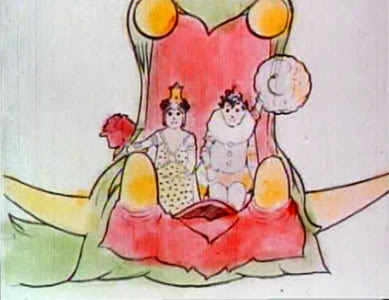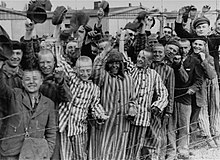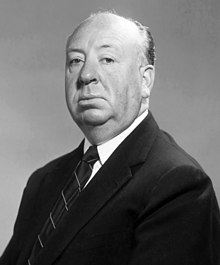April 29 is the 119th day of the year (120th in leap years) in the Gregorian calendar. There are 246 days remaining until the end of the year.
Holidays
- Christian Feast Day:
- International Dance Day (International)
- Day of Remembrance for all Victims of Chemical Warfare (International)
- Shōwa Day, traditionally the start of the Golden Week holiday period. (Japan)
- The beginning of Arita Ceramic Fair (Arita, Saga, Japan)
- The ninth day of Ridván (Bahá’í Faith)
History
In 1091, Battle of Levounion: The Pechenegs are defeated by Byzantine Emperor Alexius I.
In 1386, Battle of the Vikhra River: The Principality of Smolensk is defeated by the Grand Duchy of Lithuania and becomes its vassal.
In 1429, Joan of Arc arrives to relieve the Siege of Orleans to lead a victory over the English.
In 1483, Gran Canaria, the main island of the Canary Islands is conquered by the Kingdom of Castile.
In 1521, Swedish War of Liberation: Swedish troops under Gustav Vasa defeat a Danish force under Didrik Slagheck in the Battle of Västerås and soon capture the city of Västerås. The Danish-held castle, however, does not surrender to the Swedes until 31 January the following year, after a nine-month siege.
In 1553, A Flemish woman introduced the practice of starching linen into England.
In 1628, Sweden and Denmark signed a defense treaty against the Duke of Wallenstein, bringing Sweden into the Thirty Year War.
In 1770, James Cook arrives at and names Botany Bay, Australia.
In 1781, American Revolutionary War: British and French ships clash in the Battle of Fort Royal off the coast of Martinique.
In 1813, A patent for rubber was given to J.F. Hummel of Philadelphia, PA on this day. Well, not given to him, per se, he had to earn it by making a batch of the black gooey stuff. That was a stretch of the inventor’s imagination.
In 1832, Évariste Galois is released from prison.
In 1857, Headquarters for the US Army/Division of the Pacific/permanently established at the San Francisco Presidio.
In 1857, The first electric locomotive runs on the Baltimore and Ohio railroad at 19 miles per hour.
In 1861, American Civil War: Maryland‘s House of Delegates votes not to secede from the Union.
In 1862, American Civil War: New Orleans, Louisiana falls to Union forces under Admiral David Farragut.
In 1862, 100,000 federal troops prepare to march into Corinth, Miss.
In 1864, Theta Xi fraternity is founded at Rensselaer Polytechnic Institute, the only fraternity to be founded during the American Civil War.
In 1878, An advertisement in a Boston, Massachusetts newspaper offers a complete telephone, guaranteed to work one mile, for $3.00.
In 1882, The “Elektromote“, forerunner of the trolleybus, is tested by Ernst Werner von Siemens in Berlin.
In 1903, A 30 million cubic-metre landslide kills 70 in Frank, North-West Territories, Canada.
In 1910, The Parliament of the United Kingdom passes the People’s Budget, the first budget in British history with the expressed intent of redistributing wealth among the British public.

In 1911, Little Nemo (1911) is a silent animated short film, the first by American cartoonist Winsor McCay. One of the earliest animated films, it features characters from his comic strip Little Nemo in Slumberland. The film’s expressive character animation distinguished it from the earlier experiments of animators such as James Stuart Blackton and Émile Cohl. McCay, inspired by flip books his son brought home, came to see the potential of the animated film medium. The short’s four thousand drawings on rice paper were shot at Vitagraph Studios under Blackton’s supervision. Most of the film is a live-action sequence in which McCay bets his colleagues that he can make drawings that move. He wins the bet with four minutes of animation in which the characters perform, interact, and metamorphose to McCay’s whim. After the film debuted, he began using it in his vaudeville act. The film’s enthusiastic reception motivated him to hand-color each of the animated frames of the originally black-and-white film. Its success led him to create more animated films, including How a Mosquito Operates in 1912, and his best-known film, Gertie the Dinosaur, in 1914.
In 1913, The all-purpose zipper was patented by Swedish-born Gideon Sundback of Hoboken, New Jersey. Morton Downey Jr. wouldn’t have told us to “Zip it” if it weren’t for Gideon.
In 1916, World War I: The British 6th Indian Division surrenders to Ottoman Forces at the Siege of Kut in one of the largest surrenders of British forces up to that point.
In 1916, Easter Rising: Martial law in Ireland is lifted and the rebellion is officially over with the surrender of Irish nationalists to British authorities in Dublin.
In 1916, The Easter Rising in Dublin collapsed as Irish nationalists who has seized control of the General Post Office surrendered to British authorities.
In 1918, Germany’s main offensive on the Western Front in World War I ended.
In 1927, Construction of the “Spirit of St. Louis” was completed. B.F. Mahoney was the ‘mystery man’ behind the Ryan company that built Lindbergh’s plane.
In 1942, The Japanese army captured the town of Lashio, cutting off the Burma Road between China and India.
In 1944, World War II: British agent Nancy Wake, a leading figure in the French Resistance and the Gestapo‘s most wanted person, parachutes back into France to become a liaison between London and the local maquis group.
In 1944, U.S. forces attacked Truk (Chuuck) in the Caroline Islands, dropping over 800 tons of bombs.
In 1945, World War II: The German army in Italy unconditionally surrenders to the Allies.
In 1945, World War II: Start of Operation Manna. 1st food drop by RAF above Nazi-occupied Holland.
In 1945, World War II: The Captain class frigate HMS Goodall K479 is torpedoed by U-286 outside the Kola Inlet becoming the last ship of the Royal Navy sunk in the European theatre of World War II.
In 1945, World War II: Fuehrerbunker: Adolf Hitler marries his longtime partner Eva Braun in a Berlin bunker and designates Admiral Karl Dönitz as his successor. Both Hitler and Braun commit suicide the following day.

In 1945, The Dachau concentration camp is liberated by United States troops.
In 1945, The Italian commune of Fornovo di Taro is liberated from German forces by Brazilian forces.
In 1945, Japanese army evacuates Rangoon.
In 1945, Matthias Kleinheisterkamp, German SS officer (b. 1893) was captured by the Soviets on 28 April 1945 near the village of Halbe, south-east of Berlin. He committed suicide a day later while in captivity. He was an SS Obergruppenführer (General) and a Heer (Army) officer who served in both World War I and World War II. During World War II, Kleinheisterkamp commanded the 3. SS-Division Totenkopf, 6. SS-Gebirgs-Division Nord, 2. SS-Division Das Reich, III.(germanische) SS-Panzerkorps, VII. SS-Panzerkops, IV. SS-Panzerkops, XII. SS-Armeekorps and the XI. SS-Armeekorps. He was also a winner of the Knight’s Cross of the Iron Cross with Oak Leaves.
In 1946, The International Military Tribunal for the Far East convenes and indicts former Prime Minister of Japan Hideki Tojo and 28 former Japanese leaders for war crimes.
In 1946, Father Divine, a controversial religious leader who claims to be God, marries the much-younger Edna Rose Ritchings, a celebrated anniversary in the International Peace Mission movement.
In 1951, Tibetan delegates to the Central People’s Government arrive in Beijing and draft a Seventeen Point Agreement for Chinese sovereignty and Tibetan autonomy.
In 1953, The first U.S. experimental 3D television broadcast showed an episode of Space Patrol on Los Angeles ABC affiliate KECA-TV.
In 1965, Pakistan‘s Space and Upper Atmosphere Research Commission (SUPARCO) successfully launches its seventh rocket in its Rehber series.
In 1967, After refusing induction into the United States Army the day before (citing religious reasons), Muhammad Ali is stripped of his boxing title.

In 1968, The controversial musical Hair, a product of the hippie counter-culture and sexual revolution of the 1960s, opens at the Biltmore Theatre on Broadway, with its song becoming anthems of the anti-Vietnam War movement. Reception to Hair upon its Broadway premiere was, with exceptions, overwhelmingly positive. Clive Barnes wrote in the New York Times: “What is so likable about Hair … ? I think it is simply that it is so likable. So new, so fresh, and so unassuming, even in its pretensions.” John J. O’Connor of The Wall Street Journal said the show was “exuberantly defiant and the production explodes into every nook and cranny of the Biltmore Theater”. Richard Watts Jr. of the New York Post wrote that “it has a surprising if perhaps unintentional charm, its high spirits are contagious, and its young zestfulness makes it difficult to resist.”
In 1970, Vietnam War: United States and South Vietnamese forces invade Cambodia to hunt Viet Cong.
In 1974, Watergate Scandal: President Richard Nixon announces the release of edited transcripts of White House tape recordings relating to the scandal.
In 1975, Vietnam War: Operation Frequent Wind: The U.S. begins to evacuate U.S. citizens from Saigon prior to an expected North Vietnamese takeover. U.S. involvement in the war comes to an end.
In 1975, Vietnam War: The North Vietnamese Army completes its capture of all parts of South Vietnamese-held Trường Sa Islands.
In 1980, Alfred Hitchcock, English-American director and producer (b. 1899) dies. He was an English film director and producer. Often nicknamed “The Master of Suspense”, he pioneered many techniques in the suspense and psychological thriller genres. After a successful career in British cinema in both silent films and early talkies, renowned as England’s best director, Hitchcock moved to Hollywood in 1939 and became a US citizen in 1955.
Over a career spanning more than half a century, Hitchcock fashioned for himself a distinctive and recognisable directorial style. He pioneered the use of a camera made to move in a way that mimics a person’s gaze, forcing viewers to engage in a form of voyeurism. He framed shots to maximise anxiety, fear, or empathy, and used innovative film editing. His stories often feature fugitives on the run from the law alongside “icy blonde” female characters. Many of Hitchcock’s films have twist endings and thrilling plots featuring depictions of violence, murder, and crime. Many of the mysteries, however, are used as decoys or “MacGuffins” that serve the film’s themes and the psychological examinations of the characters. Hitchcock’s films also borrow many themes from psychoanalysis and feature strong sexual overtones. Through his cameo appearances in his own films, interviews, film trailers, and the television program Alfred Hitchcock Presents, he became a cultural icon.
In 1986, A fire at the Central library of the City of Los Angeles Public Library damages or destroys 400,000 books and other items.
In 1986, The Chernobyl Disaster: American and European Spy Satellites capture the ruins of the 4th Reactor at the Chernobyl Power Plant
In 1991, A cyclone strikes the Chittagong district of southeastern Bangladesh with winds of around 155 miles per hour (249 km/h), killing at least 138,000 people and leaving as many as ten million homeless.
In 1992, Los Angeles riots: Riots in Los Angeles, California, following the acquittal of police officers charged with excessive force in the beating of Rodney King. Over the next three days 53 people are killed and hundreds of buildings are destroyed.
In 1997, The Chemical Weapons Convention of 1993 enters into force, outlawing the production, stockpiling and use of chemical weapons by its signatories.
In 1999, The Avala TV Tower near Belgrade is destroyed in the NATO bombing of Yugoslavia.
In 2004, Dick Cheney and George W. Bush testify before the 9/11 Commission in a closed, unrecorded hearing in the Oval Office.
In 2004, Oldsmobile builds its final car ending 107 years of production.
In 2005, Syria completes withdrawal from Lebanon, ending 29 years of occupation.

In 2011, The Wedding of Prince William, Duke of Cambridge and Kate Middleton.
In 2013, A powerful explosion occurs in an office building in Prague, Czech Republic, believed to have been caused by natural gas, injures 43 people.
In 2015, A baseball game between the Baltimore Orioles and the Chicago White Sox sets the all-time low attendance mark for Major League Baseball. Zero fans were in attendance for the game, as the stadium was officially closed to the public due to the 2015 Baltimore protests.


